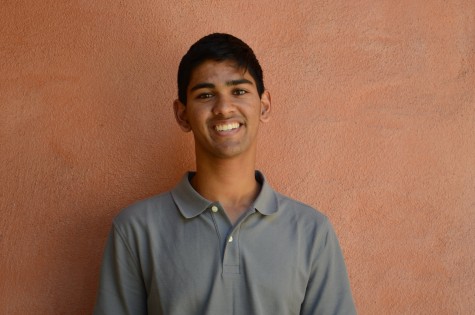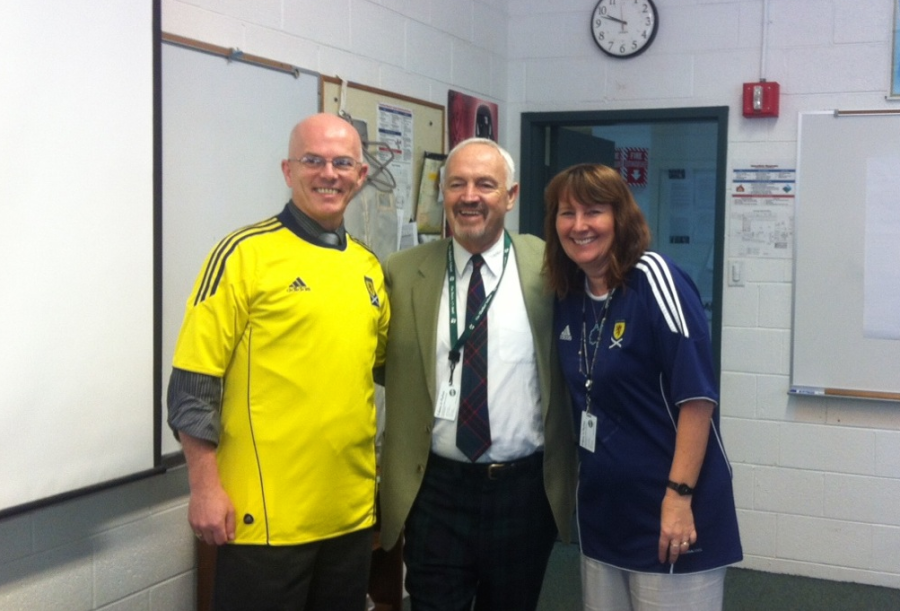Scotland votes to reject secession from the United Kingdom
Scottish voters chose not to secede from the United Kingdom after much anticipation from the Scottish National Party, as well as Upper School faculty and alumni with roots in U.K.
Prior to the opening of the polls, the public in the U.K. did not particularly favor either cause. According to a poll conducted by the ScotCen independent research center, opposition of secession gathered 52% of survey votes and affirmation of independence received 48% of the votes, without accounting for the 8% of the Scottish that remained indecisive.
John Docherty, an Upper School English teacher who was born outside of Glasgow, Scotland, pointed to a potential inequality in the distribution of funds as a key reason for secession and gave his support to the Scottish independence movement.
“I think the idea of independence is more about centuries of the English treating the Scottish as second-class citizens,” Docherty said. “The dispersing of [U.K tax] money from Westminster very seldom gets north of the border, so [Scotland will] be contributing from a taxation standpoint, but the infrastructure investment in Scotland is actually diluted. So from my standpoint, I would vote yes.”
Voter turnout in Scotland yesterday reached record heights as, for the first time, voters as young as sixteen years old could fill ballots to provide support or resistance to Scotland’s secession initiative.
History teacher Ruth Meyer, who was born in England, voiced caution against this lowered voting age with regards to the decision upon the future of the United Kingdom, claiming that 16-year old voters may not be independent of their parents and of the media, and may thus be influenced or manipulated easily during the vote.
Aditi Ashok (‘12), an Upper School alumnus who currently studies at the University of Edinburgh, witnessed the voting fervor in Scotland from last week to yesterday.
“It’s pretty crazy,” Aditi said in an email interview. “Lots of people marching in the street. Both sides have been very vocal about their opinions.”
Scottish nationalists and politicians decided to put independence to a vote after decades of tensions between the Scottish and the British. In January of 2011, Alex Salmond, the leader of the Scottish National Party, announced the Scottish secession referendum to take place during fall of 2014.
In terms of relations with England and the financial systems of the U.K., Meyer agreed with Docherty’s view.
“Maybe [the Scottish] think, perhaps, that England is taking too much of the privileges and taking too much of the cream,” Meyer said. “Certainly, England has always seemed to be the wealthiest part of the United Kingdom.”
The uneven distribution of wealth between the Scottish and the British was also noted by Susan Prutton, who was born in Britain and manages Upper School attendance. She pointed to North Sea oil as a potential incendiary for ties with England.
“[England has] benefited greatly from the oil in the North Sea, and we haven’t returned as much of that wealth to Scotland as they, perhaps, deserved,” Prutton said. “There’ve been a number of things like that where maybe they haven’t got a fair handout, and they haven’t had a fair say, I should say in votes.”
Meyer also claimed that Scottish secession would disrupt future unity within the U.K. by fragmenting the union.
Prutton supported whichever decision the Scottish people made, despite her English heritage.
“I would support secession,” Prutton said. “Whilst obviously I’m English, and from a personal perspective it’s great to think of the United Kingdom as a whole, but I feel like they have every right to make this decision. For me, it’s just a great symbol of democracy that they are able to do this through ballot box, and if they decide to secede, absolutely, I’d support them.”
Aditi presented a contrasting perspective about the Scottish referendum, with regard to Scottish nationalist zeal by claiming that Scottish pride may cause several voters to choose secession rashly rather than carefully.
Now that the voting booths have closed and ballots have been tallied, the Scottish decision to remain aligned with the U.K. has dulled the Scottish nationalist party. Alex Salmond stepped down today after serving as First Minister of Scotland and leader of the Scottish nationalist movement since 2007. Continuation with U.K. also points to increased pressure for the British Parliament in providing equitable funding to each nation in the union. If conditions in the U.K. remain tense, there is a likelihood that the Scottish may decide to re-vote, or another country in the alliance may try to dissociate.

Aditya Varshney (12) is the opinion editor of Harker Aquila and the Winged Post. This is his second year on staff. During his junior year, he occupied...

Sharanya Balaji (12) is the Editor-In-Chief for Harker Aquila and has been on staff for the past three years. Additionally, during her freshman year she...


















![“[Building nerf blasters] became this outlet of creativity for me that hasn't been matched by anything else. The process [of] making a build complete to your desire is such a painstakingly difficult process, but I've had to learn from [the skills needed from] soldering to proper painting. There's so many different options for everything, if you think about it, it exists. The best part is [that] if it doesn't exist, you can build it yourself," Ishaan Parate said.](https://harkeraquila.com/wp-content/uploads/2022/08/DSC_8149-900x604.jpg)




![“When I came into high school, I was ready to be a follower. But DECA was a game changer for me. It helped me overcome my fear of public speaking, and it's played such a major role in who I've become today. To be able to successfully lead a chapter of 150 students, an officer team and be one of the upperclassmen I once really admired is something I'm [really] proud of,” Anvitha Tummala ('21) said.](https://harkeraquila.com/wp-content/uploads/2021/07/Screen-Shot-2021-07-25-at-9.50.05-AM-900x594.png)







![“I think getting up in the morning and having a sense of purpose [is exciting]. I think without a certain amount of drive, life is kind of obsolete and mundane, and I think having that every single day is what makes each day unique and kind of makes life exciting,” Neymika Jain (12) said.](https://harkeraquila.com/wp-content/uploads/2017/06/Screen-Shot-2017-06-03-at-4.54.16-PM.png)








![“My slogan is ‘slow feet, don’t eat, and I’m hungry.’ You need to run fast to get where you are–you aren't going to get those championships if you aren't fast,” Angel Cervantes (12) said. “I want to do well in school on my tests and in track and win championships for my team. I live by that, [and] I can do that anywhere: in the classroom or on the field.”](https://harkeraquila.com/wp-content/uploads/2018/06/DSC5146-900x601.jpg)
![“[Volleyball has] taught me how to fall correctly, and another thing it taught is that you don’t have to be the best at something to be good at it. If you just hit the ball in a smart way, then it still scores points and you’re good at it. You could be a background player and still make a much bigger impact on the team than you would think,” Anya Gert (’20) said.](https://harkeraquila.com/wp-content/uploads/2020/06/AnnaGert_JinTuan_HoHPhotoEdited-600x900.jpeg)

![“I'm not nearly there yet, but [my confidence has] definitely been getting better since I was pretty shy and timid coming into Harker my freshman year. I know that there's a lot of people that are really confident in what they do, and I really admire them. Everyone's so driven and that has really pushed me to kind of try to find my own place in high school and be more confident,” Alyssa Huang (’20) said.](https://harkeraquila.com/wp-content/uploads/2020/06/AlyssaHuang_EmilyChen_HoHPhoto-900x749.jpeg)



